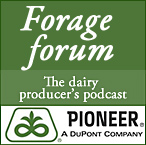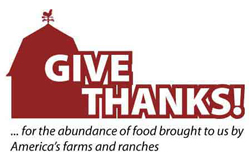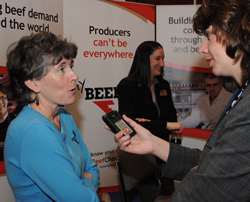 Dairy Markets Week in Review
Dairy Markets Week in Review
The cash dairy markets showed little reaction to the milk production data which appeared bullish; but concern over the October Cold Storage report, may have kept the markets from moving much, though block cheese gained almost 2 cents Friday morning and the barrels jumped 5 3/4 cents.
Block cheese closed the third Friday of November at $1.60 per pound, up 2 1/2-cents on the week, but still 17 cents below a year ago. Barrel closed at $1.50, up 5 3/4-cents on the week, 24 cents below a year ago, and a dime below the blocks. Seven cars of block traded hands on the week and three of barrel. The NASS-surveyed U.S. average block price hit $1.5044 per pound, up 3 cents. Barrel averaged $1.5113, up 0.8 cent.
Butter closed the week unchanged at $1.5250, but 6 1/2-cents below a year ago. Thirteen cars were sold on the week. NASS butter averaged $1.4004, up 8.6 cents.
Both cash Grade A and Extra Grade nonfat dry milk closed Friday at $1.40 per pound, up 2 cents on the week for the Grade A. NASS powder averaged $1.1115, down 0.7 cent, and dry whey averaged 34.68 cents, up 0.3 cent.
Provided courtesy of Dairyline.


 This really cool infrared camera can read the temperature of a silage bunker and provide a color picture of the variations in heat levels on the face. The camera has gotten cheaper since it first came out a couple of years ago, but it still retails for several thousand dollars.
This really cool infrared camera can read the temperature of a silage bunker and provide a color picture of the variations in heat levels on the face. The camera has gotten cheaper since it first came out a couple of years ago, but it still retails for several thousand dollars. A great way to measure silage heat, but not practical for most producers, so
A great way to measure silage heat, but not practical for most producers, so  Dennis explains more about this topic along with management techniques to reduce heating in this edition of Forage Forum, recorded at the Pioneer Forage Media day held in September at the Livestock Nutrition Center in Johnston, IA.
Dennis explains more about this topic along with management techniques to reduce heating in this edition of Forage Forum, recorded at the Pioneer Forage Media day held in September at the Livestock Nutrition Center in Johnston, IA. As we prepare for the holiday season, the Beef Checkoff is reminding people to give thanks for our abundant food supply.
As we prepare for the holiday season, the Beef Checkoff is reminding people to give thanks for our abundant food supply. At the National Association of Farm Broadcasting meeting last week, Massachusetts dairy farmer and
At the National Association of Farm Broadcasting meeting last week, Massachusetts dairy farmer and  Congratulations to all of the students involved in this very valuable educational program!
Congratulations to all of the students involved in this very valuable educational program! A
A Last spring,
Last spring, 